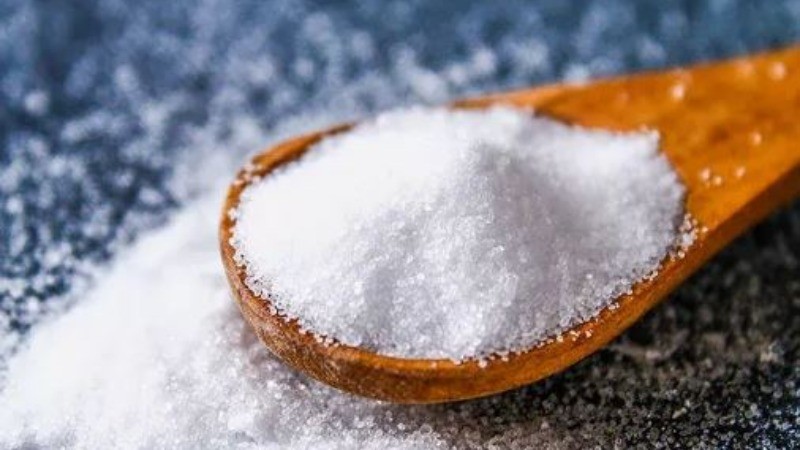
Excess salt intake is often associated with an increased risk of high blood pressure and heart-related issues. This is advice that most of us have come across at some point. However, while consuming too much salt can be harmful to health, an equally significant concern is the potential harm caused by insufficient salt in the body. Yes, consuming too little salt can also lead to various health problems.
Experts suggest that we may not always realize when there is a deficiency of salt in the body. When there is a lack of sodium in the system, the body sends out several warning signals. Let's take a closer look at the symptoms of sodium deficiency and how much salt one should consume on a daily basis to maintain good health.
1. Headaches
One of the first signs of a lack of salt in the body is frequent headaches. Salt contains sodium, and when the sodium level drops, it leads to dehydration. This dehydration affects the fluid balance in the body, which can result in recurring headaches. The brain is sensitive to changes in fluid levels, and dehydration can trigger pain or pressure in the head.
2. Fatigue and Weakness
Sodium plays an important role in nerve function and muscle contraction. When the body lacks enough sodium, nerves and muscles may not function properly, leading to ongoing fatigue. Muscle weakness and a general lack of energy are common symptoms of sodium deficiency. Individuals may feel unusually tired and unable to perform normal activities due to depleted energy reserves.
3. Loss of Appetite
It may come as a surprise, but sodium deficiency can lead to a decreased appetite. Sodium helps regulate various bodily functions, including the signals related to hunger and thirst. A lack of sodium can disrupt these signals, leading to a reduced desire to eat. As a result, the immune system may weaken, and the body may struggle to absorb essential nutrients, which can further affect overall health.
4. Dizziness or Lightheadedness
When sodium intake is too low, it can cause a drop in blood pressure. Sodium helps maintain blood pressure levels by regulating the balance of fluids in the blood vessels. When blood pressure falls too low, a person may experience dizziness or lightheadedness. This can make a person feel unsteady or even faint. Just as high blood pressure is dangerous, abnormally low blood pressure can also be harmful, leading to poor circulation and increased risk of falls or accidents.
5. Muscle Cramps
A lack of sodium can affect the body’s ability to maintain proper muscle function, which can lead to muscle cramps. Sodium is crucial for nerve signaling that helps muscles contract and relax properly. In the absence of enough sodium, the muscles may become stiff and painful, leading to cramps, especially during physical activity.
6. Increased Thirst
Sodium is involved in maintaining the body’s fluid balance. When there is a deficiency, the body may respond by increasing thirst. This is because low sodium levels signal the kidneys to conserve water to help restore balance. So, if you find yourself feeling thirsty more than usual, it could be a sign that your sodium intake is too low.
How Much Salt Should You Consume Daily?
The World Health Organization (WHO) recommends that the average adult should consume no more than 5 grams of salt per day. This is equivalent to about one teaspoon of salt. Consuming salt in this recommended amount helps to meet the body’s sodium requirements without putting unnecessary strain on the cardiovascular system. Consuming more than this amount can lead to excessive sodium intake, increasing the risk of high blood pressure, heart disease, stroke, and kidney problems.
It's important to note that sodium is present in many foods, particularly processed foods, so even if you're not adding salt directly to your meals, you may still be consuming more than the recommended amount through packaged and prepared foods.
Skye Air Transforms Healthcare Delivery with Drone Technology Under Ayushman Bharat Scheme
Boost Your Immune System with These Zinc-Rich Foods
Be cautious when drinking tea made with raw milk, as it can worsen health issues